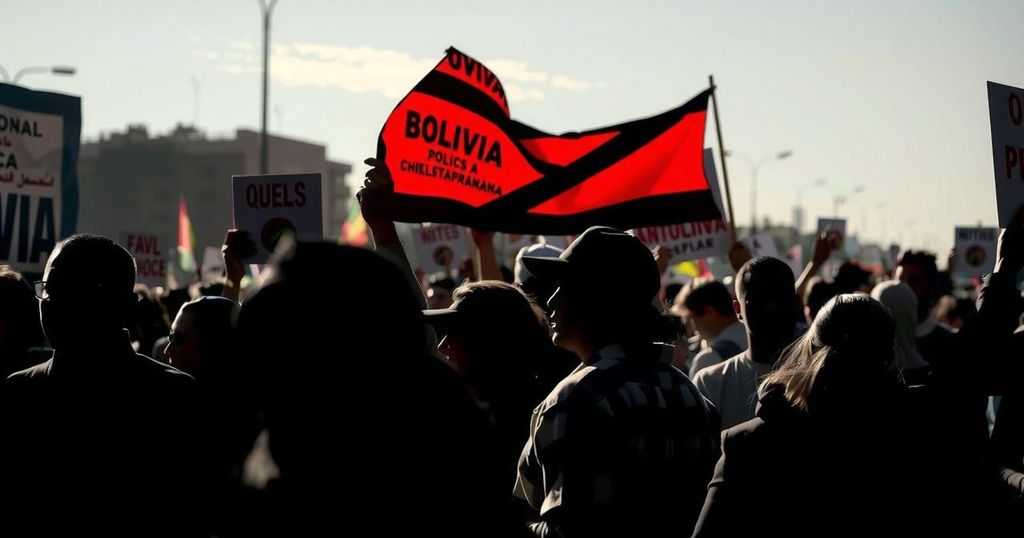Tensions Escalate in Bolivia Amidst Protests and Political Strife
Clashes in La Paz leave over a dozen injured during a protest march led by former President Evo Morales, as tensions rise between him and current President Luis Arce. The march, amidst accusations of treachery and calls from supporters for Morales’ return, highlights a significant political feud ahead of the upcoming 2025 elections.
La Paz witnessed significant unrest as over a dozen individuals sustained injuries following confrontations between anti-government protesters and counter-demonstrators amidst a burgeoning power struggle between President Luis Arce and former President Evo Morales. On Tuesday, Morales rallying approximately 10,000 supporters initiated a “March to save Bolivia” traveling from Caracollo to the capital. Initially, the march commenced in a peaceful manner but escalated when it encountered government supporters near Panduro, who were armed with tear gas canisters, stones, and firecrackers, effectively blocking the highway. Counter-protesters vocally condemned Morales with chants stating, “Evo, you traitor, your time has passed,” while Morales’ supporters retaliated by attacking with slingshots and rocks, asserting, “Evo, Bolivia wants you back!” This event represents the latest chapter in the escalating political conflict between Arce and Morales, particularly significant as Bolivia approaches the 2025 election. Morales and Arce were once aligned within the same socialist political movement, with Morales serving as president from 2009 until 2019 and Arce taking office in 2020. However, their relationship deteriorated in 2021 due to disagreements regarding the internal leadership of their party. Critics of Arce associate his governance with the nation’s economic difficulties and current fuel shortages. Conversely, Arce has accused Morales of orchestrating a coup through the mobilization of protests against his administration. In a stark declaration, Eduardo Del Castillo, a high-ranking official within Arce’s government, labeled the protest as a “death march” aimed at “destroying democracy in Bolivia and endangering the lives of Bolivians.” Morales has further alleged that the government deployed plainclothes police officers to incite discord during the march. This accusation has been denied by Arce’s administration, which Morales claims has shown a disregard for human rights and the laws of Bolivia. Despite a ruling in 2023 that Arce contends disqualifies him, Morales has expressed his intention to run for presidency again in the upcoming election.
The political landscape in Bolivia has been tumultuous, particularly following the resignation of Evo Morales in 2019 amid allegations of election fraud. Luis Arce, a close ally of Morales, assumed the presidency in 2020 with the promise to continue the socialist policies initiated during Morales’ administration. However, internal conflicts emerged, revealing a schism between the two leaders regarding party leadership and governance approaches. The current discord stems from differing perspectives on how to address national crises, including economic downturns and social unrest, intensifying as Bolivia nears the next electoral cycle in 2025.
The recent clashes in Bolivia underscore the deepening rift between President Luis Arce and former leader Evo Morales, rooted in their divergent strategies and ideologies within the same political movement. As both leaders position themselves for the upcoming elections, they continue to face opposition and growing tensions among their respective followers, reflecting underlying dissatisfaction with the current administration’s performance.
Original Source: timesofoman.com








Post Comment